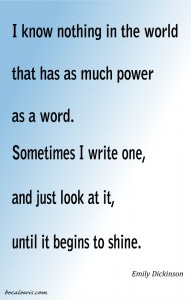 Sitting on the stationary bike at the gym, reading Kurt Vonnegut on my iPhone, I was suddenly, and instantly, transported through a time warp back to somewhere in the sixties.
Sitting on the stationary bike at the gym, reading Kurt Vonnegut on my iPhone, I was suddenly, and instantly, transported through a time warp back to somewhere in the sixties.
I was in our living room, in the house on Irvin Ave., and Dad was walking with his trademark forward lean down the hallway, correcting us. English teacher to the core, he was always correcting our speaking habits, but during this particular time-period, he was stuck on us not saying the word ain’t and using the word as instead of like.
This focus on these two words lasted for a month or two, then calmed down to normal levels, although we all walked around the house for many years saying “AS a cigarette should, not like a cigarette should” and to this day my ears perk up when I hear the word like used instead of as.
What caused the time warp? It was Kurt’s fault! Both the time warp, and the month of correction, I am sure of it! After all, there it all was in his story called My Father’s Dictionary. I conjecture that Dad read that story, and inspired our ain’t and as time.
It was an odd feeling, to be reading something so many years later that must have so profoundly moved him at the time. This insistence on the correct word has stuck with me, sometimes to my embarrassment as I correct someone without thinking.
My only consolation is that my brother and sister sometimes do the same thing. Perhaps a bad habit when no one has asked us to do so – however, it did begin my fascination with words, and how they so quickly create an impression.
Words, and the power they carry is immeasurable, yet we sometimes use them willy-nilly as if they have no current or future weight. All of us, at one time or another wish we could take back something we said; or wish we said something better than we did. I am sure I owe many people an apology for words spoken without grace.
Imagine a world without words, and the opposite appears; the world, as we know it, composed by words. Cultures, families, societies, countries — all have words as their basis and common link. Words bind us together, move us to action, create tension, or bring peace.
We use words to describe, to condemn, to love, to divide, to understand.
However, it is the under lying meaning of the word that is its essence, because no word can be taken completely literally. How can it be that a word means the same thing to each of us, it’s not possible.
In order to communicate, and to understand, we have to listen to the meaning behind the word, not the actual word; otherwise, we might miss the intention of the speaker or writer.
Today, there are people using words just to hear themselves talk, or to make themselves important. I suppose this has always been so, but now we have the media.
On the other hand, we have glorious architects of words. Writers building structures to house, walk through, or live within. There are writers choreographing words, instead of people, to move through the rhythm of an idea to entertain, teach, and inspire.
We all might not be these kinds of word masters, but we can remember that what we say and write, once released, carry on as messengers long after we may have forgotten them.
As listeners and readers of words, understanding the intent and meaning behind the words used will go a long way in dissolving conflict and confusion, and uniting us in the desire to act for the good of all, as we should (not like we should .. right Dad?).

 BECA LEWIS coaches, teaches, writes blogs and books, plays with art, and is addicted to reading. She lives in Ohio with her husband and has kids and grandkids scattered across the country.
BECA LEWIS coaches, teaches, writes blogs and books, plays with art, and is addicted to reading. She lives in Ohio with her husband and has kids and grandkids scattered across the country.






